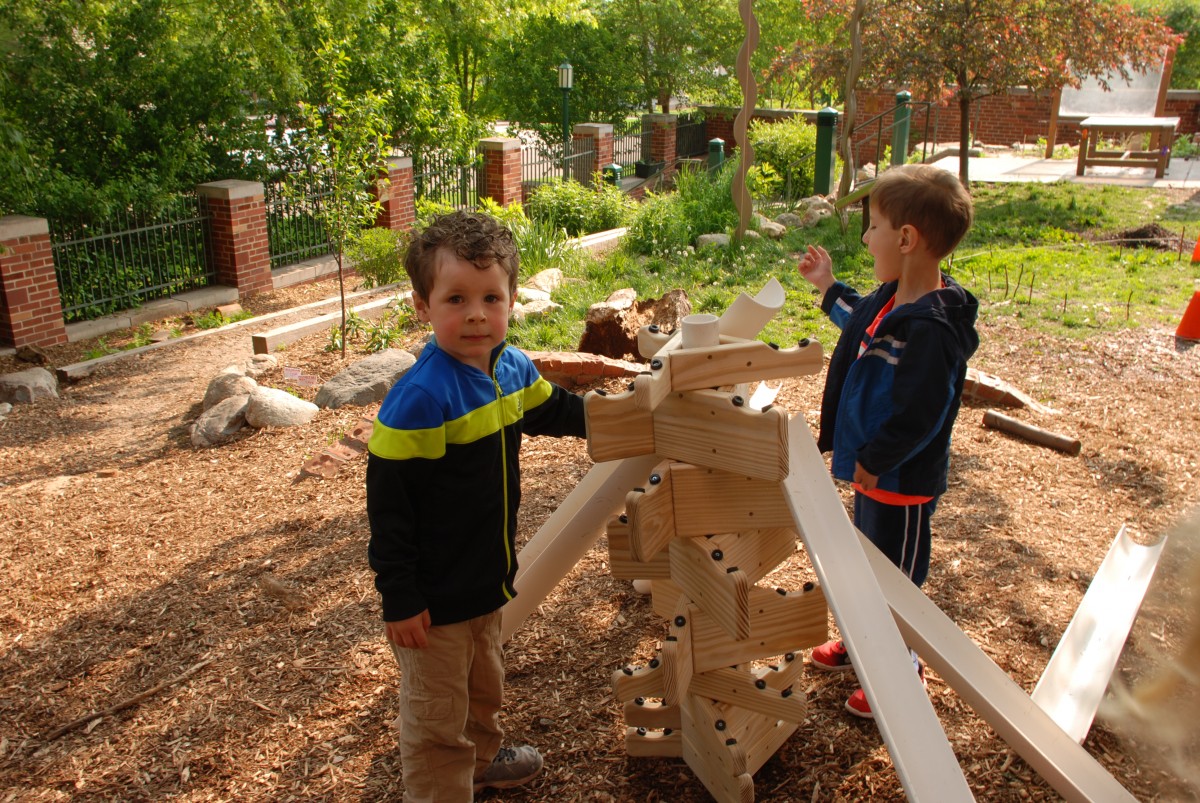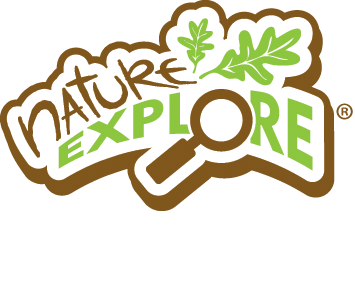How Do Children Learn in Nature Explore Classrooms? Let us Count the Ways…

This is the second in a series of “Roots in Research” blog posts, in which we summarize key findings of research conducted by Nature Explore staff and our colleagues at other institutions.
An increasing body of research has documented the powerful role of play in children’s development and the importance of getting children outdoors. Our researchers have discovered that Nature Explore Classrooms encourage children, families and educators to connect with nature in meaningful ways and to play authentically; this play, in turn, yields rich learning opportunities.
In short, for young children, play is learning and intentionally designed outdoor spaces provide powerful contexts for growth and development. Peek into a dynamic Nature Explore Classroom and you will see:
—Social skills blossoming. As children work together to build a bridge with tree cookies and wooden beams, they intuitively learn to work in harmony and partnership with their peers. Creative play fuels natural cooperation, and celebrations of mutual accomplishments cement newfound friendships.
—Intrapersonal skill developing. Observers of Nature Explore Classrooms noted countless opportunities for children to develop intrapersonal skills including initiations, expressing preferences, problem solving and critical thinking. These powerful skills fuel traditional learning throughout the school years.
—Language and literacy skills flourishing among children of all ages. It’s butterfly day in a Nature Explore Classroom. After days of careful observation of a Monarch chrysalis, the children watch in real time as she breaks free and stretches her wings for the first time. As they gasp with delight, they also experiment with rich vocabulary (transformation, reveal, milkweed) and clamor to share their words with their peers and teachers. Later, the children sketch the butterfly and annotate their sketches with descriptive language. Such an activity is but one example of how the natural world fosters an appreciation of language and the development of literacy skills.
—Profound development of kinesthetic skills. Climbing. Crawling. Leaping. Planting seedlings. Lifting and rolling heavy logs to build a fort. Nature Explore Classrooms are alive with opportunities for both gross and fine motor development.
—Visual-Spatial learning happening around every corner. A great deal of our earliest research focused on the powerful development of visual-spatial skills that occurs in Nature Explore Classrooms. When children work with blocks and related materials, they practice construction skills, convey their knowledge about structures and systems, share emotions, make visual analogies, and develop important social and verbal skills. Happily, natural building materials—from rocks to cicada shells to giant fern fronds—are free and accessible to even the youngest architects. When it comes to finding unique materials for block play, the natural world will never disappoint.
—The genesis of science learning. The connection between science learning and Nature Explore Classrooms is both obvious and profound. Time outdoors allows children to connect with seasons and cycles, closely observe plants and animals, and delight in tending their own gardens and orchards. Paired with thoughtful conversations and educator-led activities, this time in nature provides a hands-on introduction to science concepts.
—The beginnings of math knowledge. Both the National Council of Teachers of Mathematics and the National Association for the Education of Young Children call for young children to learn in realistic contexts and to study the world in which they live. In Nature Explore Classrooms, children develop key math concepts as they interact with the environment, each other, teachers and materials. Natural and living materials unique to outdoor classrooms contribute to math learning, and daily opportunities outdoors allow children to use their whole bodies and physically experience math concepts.

